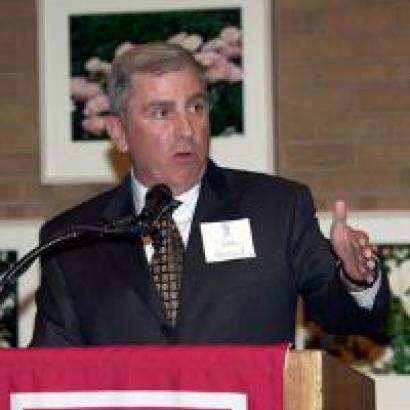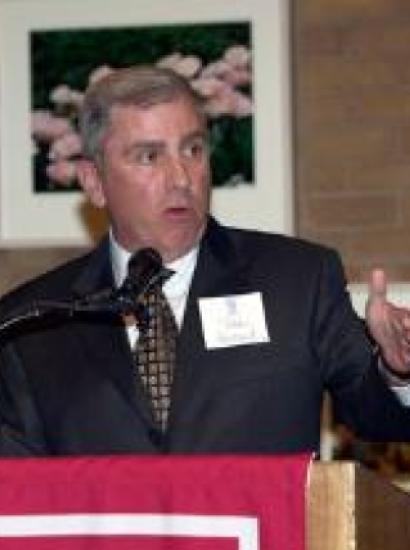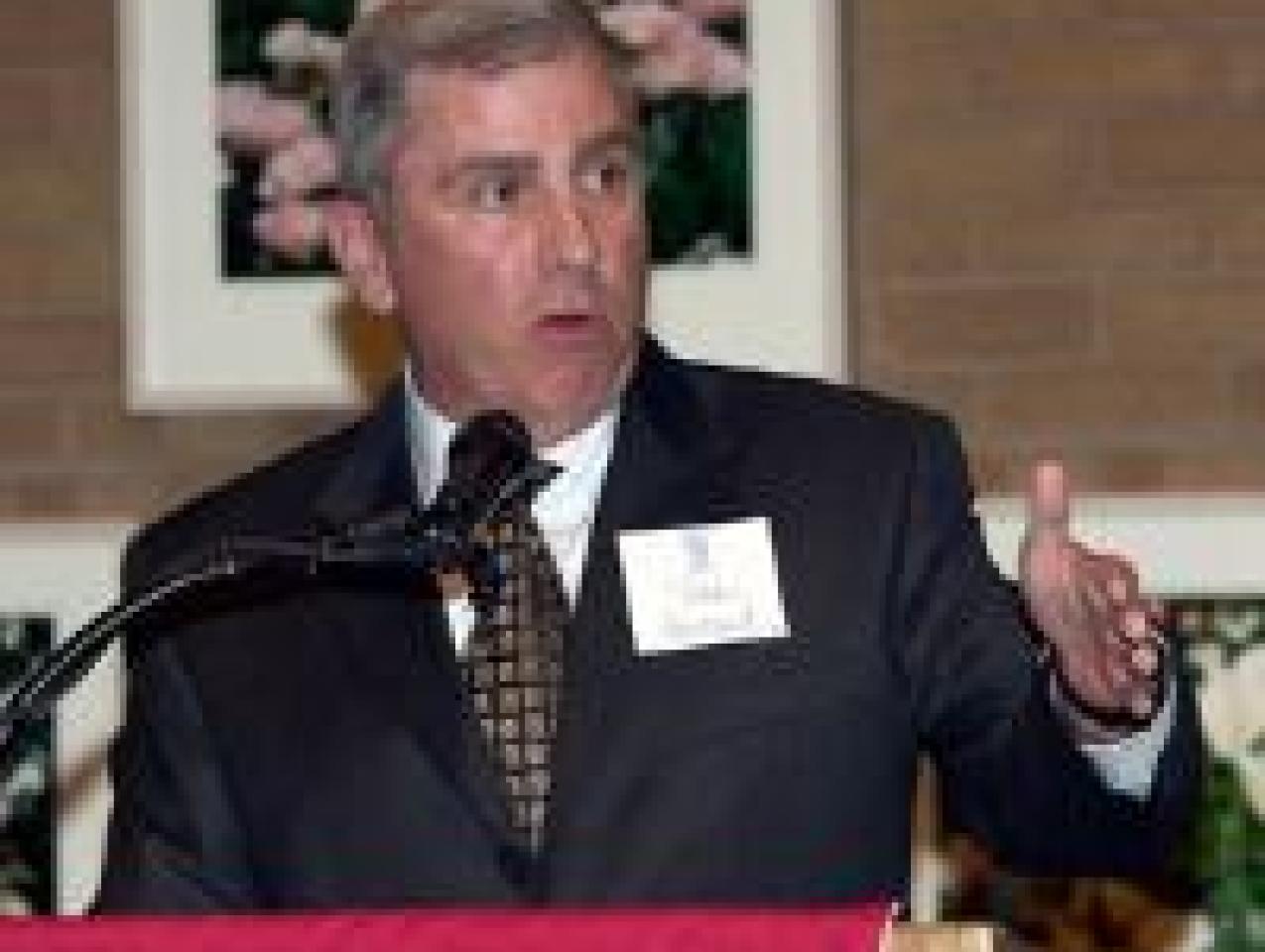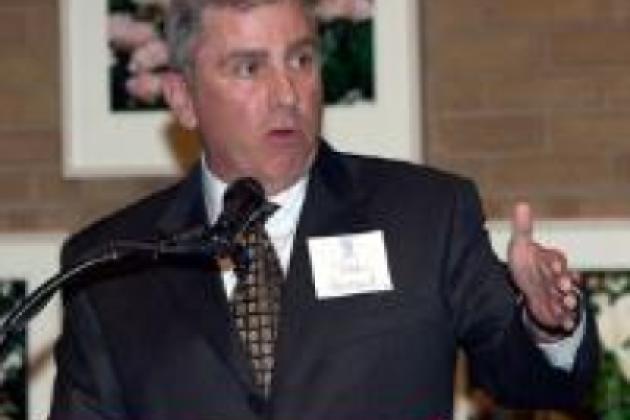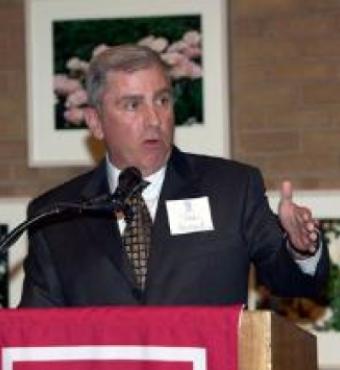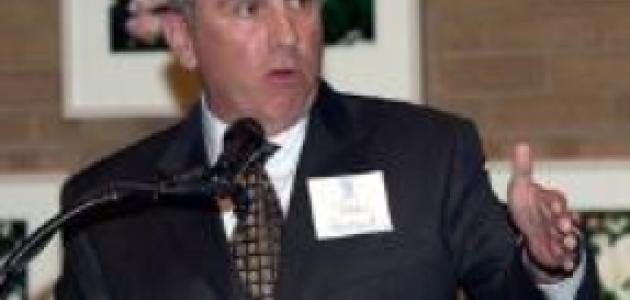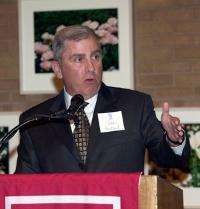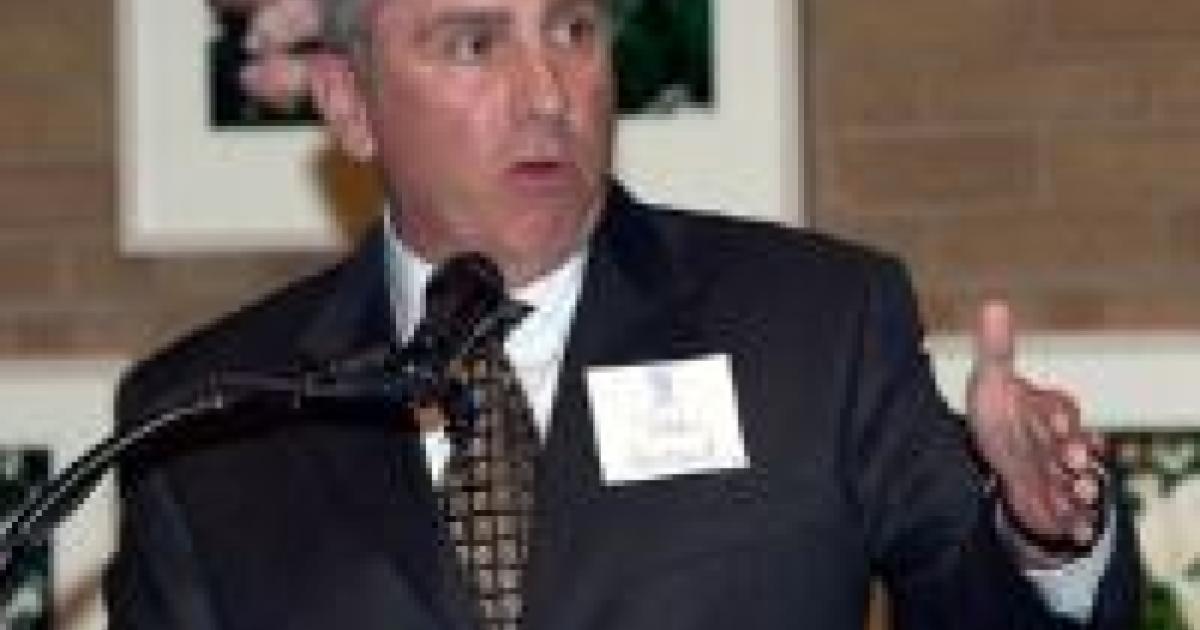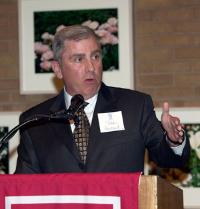
STANFORD—The popularity of the spring and fall retreats hosted annually by the Hoover Institution resulted in a third retreat being added to the schedule this year.
That retreat, held June 4–5, offered presentations by Hoover fellows and scholars from other institutions on American culture, politics, and the wars in Iraq and Afghanistan. The speaker at the dinner on Monday, June 4, was General John P. Abizaid (ret.), the Annenberg Distinguished Visiting Fellow. In his speech Abizaid spoke of the need to stabilize Iraq. Abizaid believes that the United States can deal with the challenges but that perseverance is required.
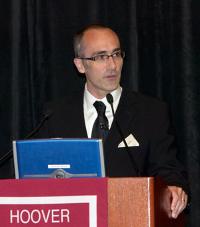
Joel Kotkin
In “The Changing Face of Metropolitan America: New Directions to 2050,” Joel Kotkin, the Irvine Senior Fellow at the New America Foundation, said that “the United States is the only advanced country with a growing population.” That growth, Kotkin said, has implications for how and where Americans will live. For instance, new buildings for commercial and residential purposes will need to be built. “Suburban dominance is growing,” said Kotkin, noting that the growth is due to demand; most people want to live in the single-family homes that make up the suburbs. He also said that there will be a continued shift to “regions of opportunity,” that educated migration and immigration will follow that pattern, and that affordability will be key in attracting people. Kotkin has authored six books, including the best seller The New Geography: How the Digital Revolution is Reshaping the American Landscape and, his most recent, The City: A Global History.
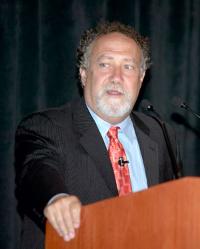
Arthur Brooks
Who benefits from charitable giving? The surprising answer is the donor, as well as the recipient, benefits from giving. Those benefits were the topic of Arthur Brooks talk, “Why Giving Matters for America.” Brooks, a professor of public administration and director of the Nonprofit Studies Program at Syracuse University’s Maxwell School of Citizenship and Public Affairs, said that “giving lies behind American prosperity.” The author of Who Really Cares: The Surprising Truth about Compassionate Conservatism, Brooks cited research showing that giving is not only linked to the prosperity but also to the happiness of the donor. “Charitable giving changes the giver,” Brooks said, “charitable giving makes them into different people — more successful, more effective, and happier.’
Hoover senior fellows David Brady and Morris P. Fiorina discussed the perception and reality of political polarization in their talk “Political Polarization in the United States: Origins and Consequences (an Overview of the Hoover-Brookings Project).” Brady, Hoover deputy director, although acknowledging that elections are often narrowly decided, questioned whether the electorate is as divided as are the political elites, such as elected officials. “If the electorate isn’t polarized, and it’s just the elites that are polarized, then the party that develops a central strategy and can appeal to median voters is the party that will win,” said Brady, who is the coauthor of Red and Blue Nation: Characteristics and Causes of America’s Polarized Politics. Fiorina, author of Culture War: The Myth of a Polarized America, has done extensive research on polarization and calls it a “gross exaggeration.” His research shows that most Americans are not polarized and that their views have not changed significantly in the past few years.
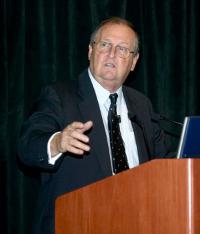
David Brady
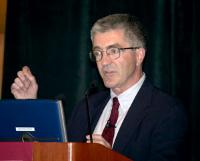
Morris Fiorina
In the final presentation of the retreat, Vali Nasr, a professor of Middle East and South Asia politics at the Naval Postgraduate School, addressed the conflict between Sunni and Shia in Islam that many Americans find confusing. Nasr, author of The Shia Revival: How Conflicts within Islam Will Shape the Future, discussed the roots of the conflict in his talk by the same name. “Like all major religions,” Nasr said, “there are sectarian divisions in Islam.” Following the death of the prophet Mohammed his followers disputed over who should assume leadership; those who favored the lineage of Mohammed became known as Shia; those who favored elevating his companions to leadership were identified as Sunni. Today, the division has become merely a way to identify people, Nasr said. The interest of Arab leaders in Iraq is not terrorism, Nasr said, but what the Shia-Sunni conflict means for their countries.
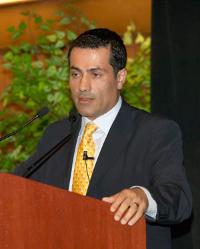
Vali Nasr
In addition to the plenary speakers, Hoover fellows and guest speakers presented conversations on a variety of topics, including Annelise Anderson, Hoover research fellow, and Martin Anderson, the Keith and Jan Halburt Senior Fellow, on “Ronald Reagan: A New Biography”; Paul Peterson, Hoover senior fellow, on “School Accountability Lessons: Do We Need to Fix ‘No Child Left Behind’”; Kori Schake, Hoover research fellow, on “Europe after the French Election”; Russell Berman, Hoover senior fellow, on “The Red-Green Alliance: Why the Left Loves Jihad”; Robert Hall, the Robert and Carole McNeil Senior Fellow, on “Is Venture Capital a Good Deal for Investors? For Entrepreneurs”; Michael McFaul, the Peter and Helen Bing Senior Fellow, on “Is the Cold War Back? Russia’s Authoritarian Drift and U.S.-Russia Relations”; John Cogan, the Leonard and Shirley Ely Senior Fellow, on “Health-Care Policy at the Crossroads”; Kenneth Jowitt, the Pres and Maurine Hotchkiss Senior Fellow, on “The Humpty Dumpty Phenomenon: Failed States and Civil War”; Dennis Bark, Hoover senior fellow, on “The Difference between Europeans and Americans”; Larry Diamond, Hoover senior fellow, and Abbas Milani, Hoover research fellow, on “Whither Iran? Nukes, Kooks, or Democracy?”; and John Shoven, the Buzz and Barbara McCoy Senior Fellow, on “How the Economy Could/Should Adjust to the Aging of Society.”







